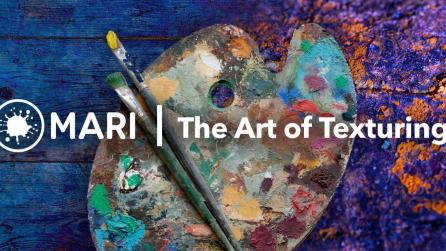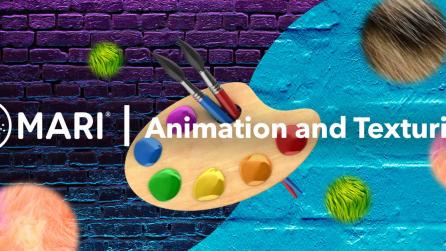What skills do you need as a Senior Compositor?
Imagine you’ve been working in the competitive industry of VFX (visual effects) for a few years. Maybe you first started out as a Junior Compositor, you already have a variety of projects you worked on and you’ve put together an amazing showreel that showcases your skills. You gained more experience and became a Mid Compositor but now you feel ready to move ahead, to aim higher, and to have more responsibilities. But how do you make the transition from a Mid Compositor to a Senior Compositor?
You might be surprised to hear that experience is not always enough, you also need to demonstrate some key skills and attributes. In this article, we’ll see what’s expected from you when changing gears from a mid to a senior role, what skills can make you stand out as an applicant, and what qualities you need as a team member once you get the role.
We wondered who would be best to share their expertise and advice for aspiring Senior Compositors and felt that David Nolan, a former Nuke Product Manager at Foundry and now Senior Compositor at DNEG would be perfect to do so. David has over 10 years of experience in the VFX industry and has worked on a number of major movie franchises, including Avengers, Star Wars and Netflix’s School for Good and Evil. We sat down with him to pick his brain and discover which indispensable skills compositors should develop when looking to move up the ladder.
Ready to take notes? Let’s discover together what being a Senior Compositor is all about!
Step up
When making the transition from a mid-weight position to a senior one, it’s already a given that you should know how to use an industry-standard compositing tool like Nuke very comfortably—we’ll get into the technical abilities which can help you stand out a little bit later on, so keep on reading! But, for now, let’s have a look at some crucial things that Senior Compositors should master in order to be successful in their role.
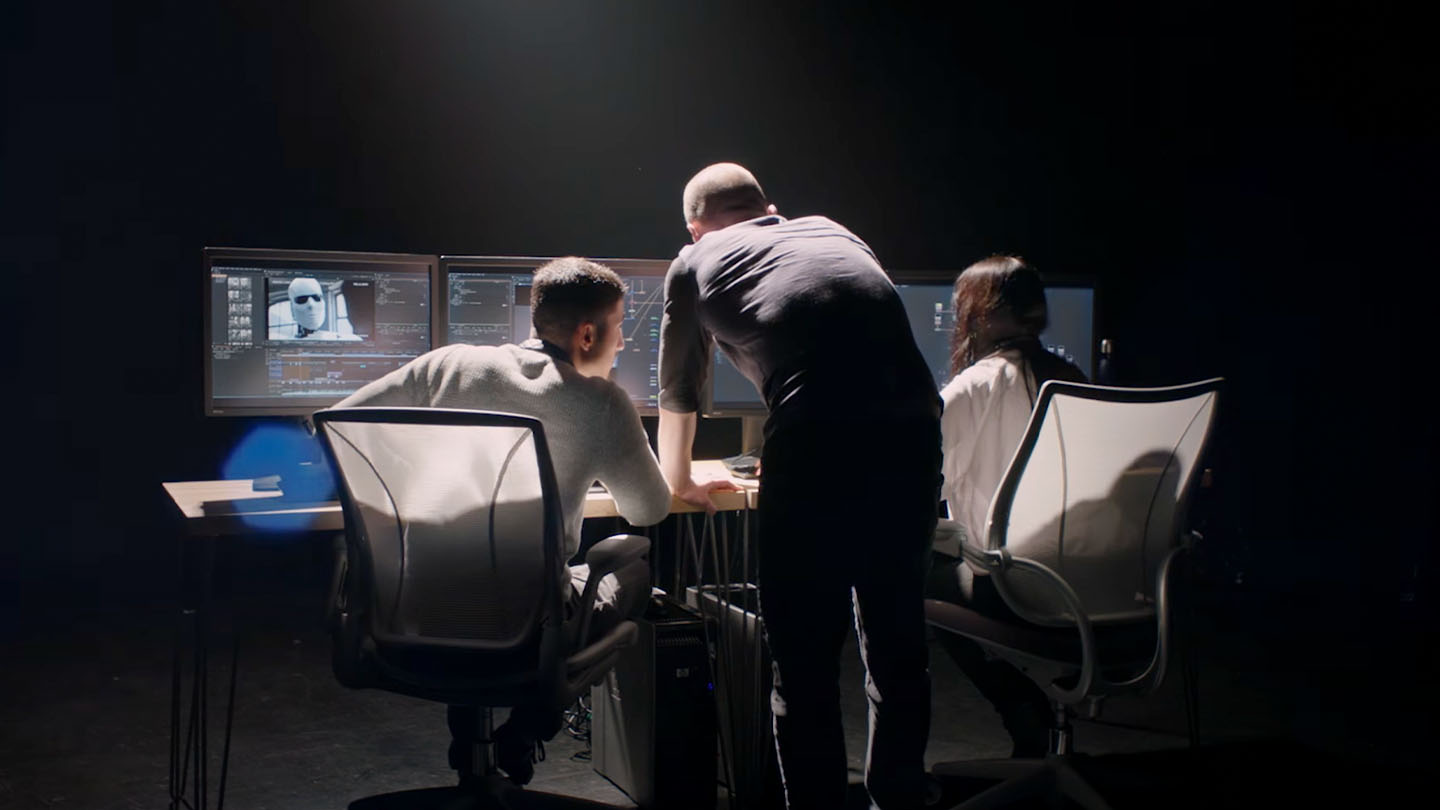
Communication is key—and it’s not just a cliché. When you try to operate at the highest level, communication is crucial to collaborate with the other departments that are feeding your work and with other compositors on your team. So why is it so important? Because you all work together towards the same goal and you want to make sure that what you do is aligned. You need to ensure that all the shots in the sequence are consistent—they should all have the same aesthetic and have a cohesive feel which, of course, can be a challenge and is something we’ve looked into before.
David Nolan explains: “It’s also about communication in daily sessions with the team. You should be able to talk about what you have achieved already, what still needs to be done and be able to have a productive conversation with your supervisor where they can give you useful feedback. Communication is the big thing that anybody should work on in this industry, but particularly if you’re looking to move up.”
Besides communication skills, a Senior Compositor is also expected to have a wide range of experience and a solid working history. You should consider tailoring your showreel to the jobs you want to do and the areas you want to work in. Your experience could range from commercials, where the work has to be done quickly, to film, where high-fidelity pixel-precision is more of a focus, or episodic work, which can be a good middle ground between the two. Whichever path you choose, ultimately you should be able to show that you can handle the complexity of the shots and prove that you’re an ace at problem solving.
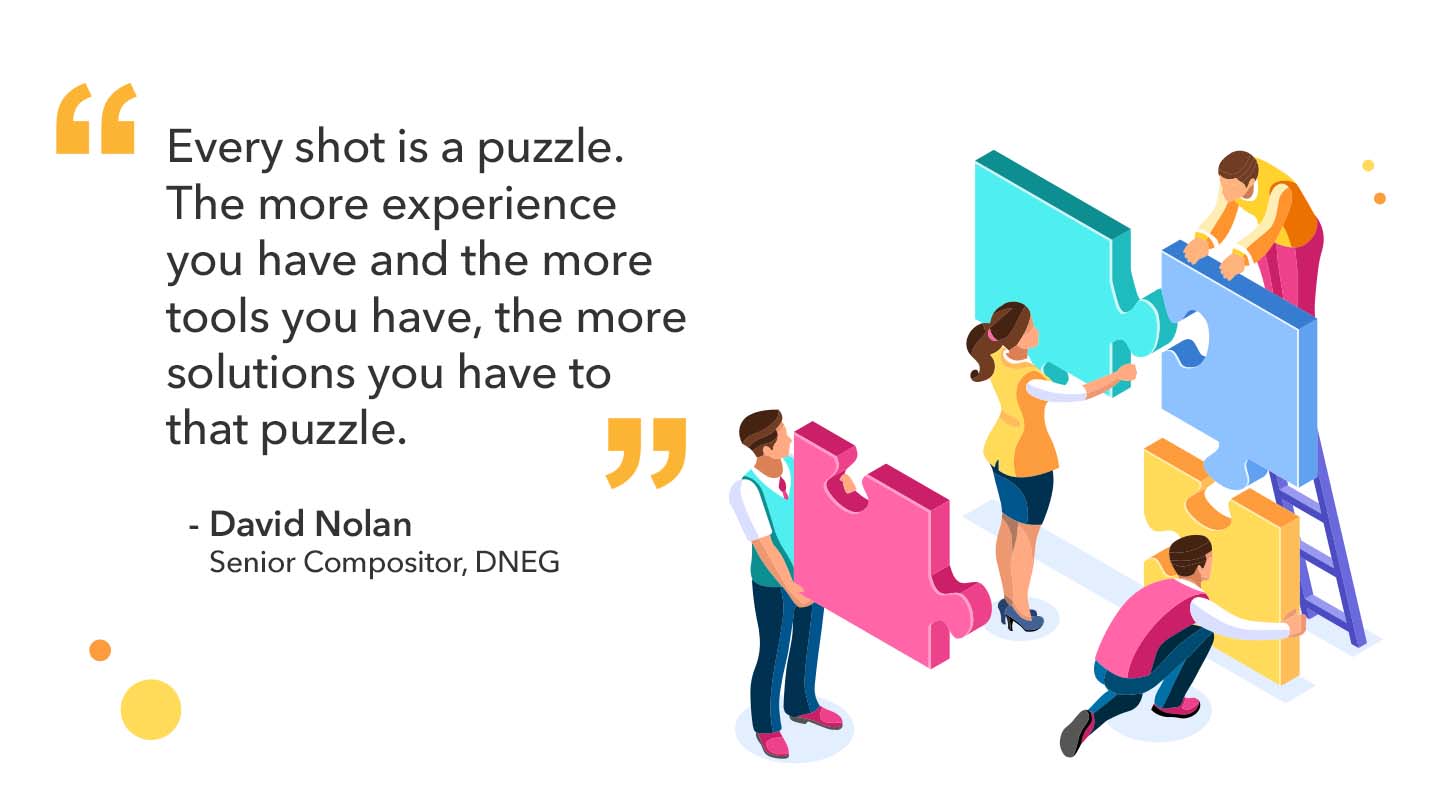
“There’s a big difference between knowing where the buttons are and knowing why to push the buttons. Mentoring Junior Artists should be about helping them to focus on what is happening in their scene rather than what is happening in the tool they are using. If they understand why they need to add more light in here, or why the shadows aren’t working there, then they can take that knowledge forward into future challenges,” David shares with us.
“Every shot is a puzzle. The more experience you have and the more tools you have, the more solutions you have to that puzzle”, David explains. In a nutshell, his advice is that once you get the shot, you should start analyzing it and determine what the shot needs, and what the best course of action is. You should also communicate with the other departments and ensure that you have everything you need to work up that shot to a high quality, so you can present it to various stakeholders and then have informed discussions about the next steps.
Skill up
As promised, let’s delve deeper into some technical abilities that can help you stand out as a Senior Compositor and which can also support your workflows.
By the time you are getting to the mid / senior level, you should have a solid grasp of the key skills and functions in Nuke, and should be able to handle any shot or task you are given. But one key skill which you can develop is creating and accessing gizmos in Nuke.
With Nuke gizmos, you can easily package up parts of your Node Graph into a single group, making it easy to share them across projects, teams, or Nuke scripts. If you need to brush up on your knowledge about this tool, make sure you check out this tutorial on creating reusable tools which showcases the flexibility and versatility of our gizmos.

Why is knowing how to use gizmos so important? David goes on to explain “as you get more senior and you start doing look development and developing the aesthetics of a sequence, being able to pass things around to other members of the team in a way that is easy for them to pick up is really important.”
Another key skill that can be beneficial for you is being able to write Python code and make use of the new Python API. “You don't need to be a Python expert,” David tells us. “There is going to be somebody in your company who is a Python expert, and you can go to them for advice, but if you can write a bit and use that to make your work more efficient and to make your tools easier to work with, it can help speed up the workflow of you and your team.”
Make the most of your passion
So what are some indispensable learnings that you could maximize and apply to up your game and become an experienced Senior Compositor? Aim to have a good balance between technical abilities which showcase your expertise and interpersonal skills that help you collaborate productively and efficiently. Make use of the best industry-standard tools such as Nuke and have a deep understanding of how their features, like the gizmos or Python, can help you improve your workflows and solve challenges you might face.
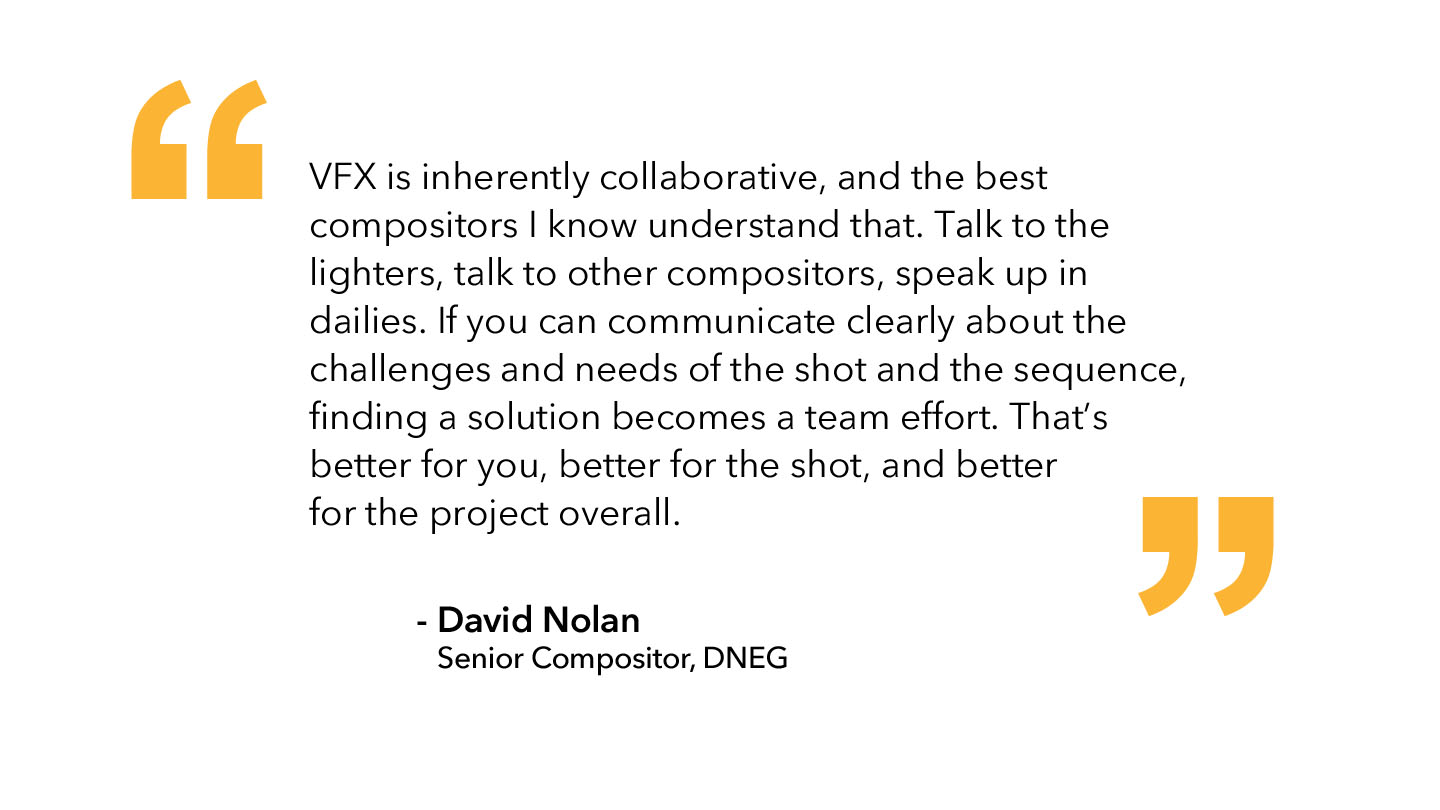
Carefully add pieces from the projects you worked on to your showreel puzzle, making them representative of your capabilities and start becoming the mentor you wished you had when you started out as Junior.
